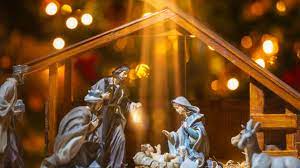Christmas, the most celebrated festival worldwide, has a special significance for billions of people. It is a time of joy, love, and togetherness, when families gather, gifts are exchanged, and traditions are honored. But have you ever wondered about the frequency of Christmas falling on a Sunday? It is a rare synchronization that occurs only a few times within a century. Let’s dive into this intriguing phenomenon and explore the historical and cultural aspects associated with it.
The occurrence of Christmas falling on a specific day of the week is influenced by the complex interplay between the solar and lunar calendars. To understand this, we need to delve into the mechanics of the Gregorian calendar, which is widely adopted globally. The Gregorian calendar follows a 400-year cycle, with each year being classified as either a common year or a leap year. A common year has 365 days, while a leap year has an extra day, making the total count of days 366.
The rarity of Christmas aligning with a Sunday lies in the way the Gregorian calendar handles leap years. According to the rules of the Gregorian calendar, a leap year occurs every four years, except for years that are divisible by 100 but not by 400. This corrective mechanism helps maintain synchronization between the solar and calendar year.
Now that we understand the basis of the Gregorian calendar, let us explore the synchronization of Christmas falling on a Sunday. To analyze this, we need to break down the cycles involved. The first cycle is the 400-year cycle, mentioned earlier, as it takes four centuries for the pattern to repeat. Within each 400-year cycle, Christmas occurs on a Sunday approximately 57 times.
Moving down the hierarchy, let’s zoom in on the 100-year cycle. Within a 100-year cycle, the frequency of Christmas falling on a Sunday also varies. It can range from 14 to 15 times, depending on leap years and the distribution of days in those particular years.
Further narrowing our focus, we encounter the 25-year cycle, which consists of a repeating pattern of leap years and common years. Within this cycle, the frequency of Christmas on a Sunday ranges from 3 to 4 times. The difference in this range is due to the influence of the previously mentioned 100-year cycle.
Finally, we reach the smallest unit of our analysis—the 7-year cycle. This cycle consists of an uninterrupted pattern of days of the week. The significant key to unlocking the synchronization lies within this 7-year cycle. The occurrence of Christmas falling on a Sunday repeats after every 7-year period.
Now that we have dissected the mechanics and cycles, let us explore some notable occurrences of Christmas aligning with a Sunday throughout history. The most recent instance was in 2016, when Christmas was celebrated on a Sunday. Prior to that, we have to traverse back to 2011, 2005, 1994, and so forth, with each interval being 7 years.
One remarkable historical event related to Christmas and Sundays is the coincidence of Christmas Eve and Sunday, leading to a doubly special celebration. This phenomenon occurred in 1922, and it will recur again in 2033. Such a convergence adds an extra layer of significance and jubilation to the festive season.
The synchronization of Christmas falling on a Sunday has implications for various countries and cultures. It impacts religious observances, family traditions, and public holidays. In countries where Sunday is considered a day of rest and worship, the alignment of Christmas with this sacred day holds deep significance. It creates an extended period of solace, reflection, and religious observance for communities around the world, as the traditional Christmas celebrations continue to unfold.
The rarity of the synchronization of Christmas falling on a Sunday adds to the allure and anticipation associated with this festive season. It is a reminder of the intricate workings of the calendar system we follow and the extraordinary occurrences that unfold within it. While it may be a rare event, it serves as a testament to the cultural and historical legacy of Christmas, intertwining with the fabric of various societies.
Christmas on a Sunday: How Frequently Does This Festive Day Align with the Sabbath?
In conclusion, the frequency of Christmas falling on a Sunday is indeed a rare synchronization that encapsulates the beauty and mystique of this global festival. It reminds us of the complexity of time and our collective human heritage. So, as you celebrate Christmas, take a moment to appreciate the unique alignment of this cherished holiday with the tranquility of a Sunday.



Add a Comment